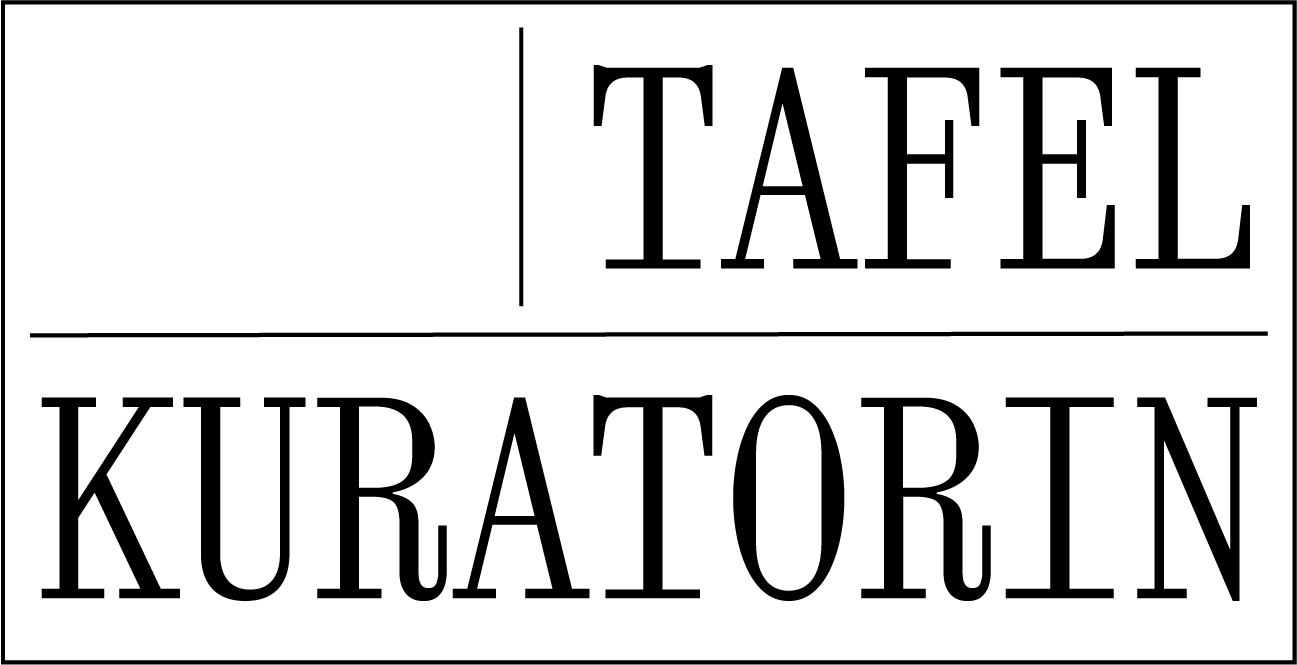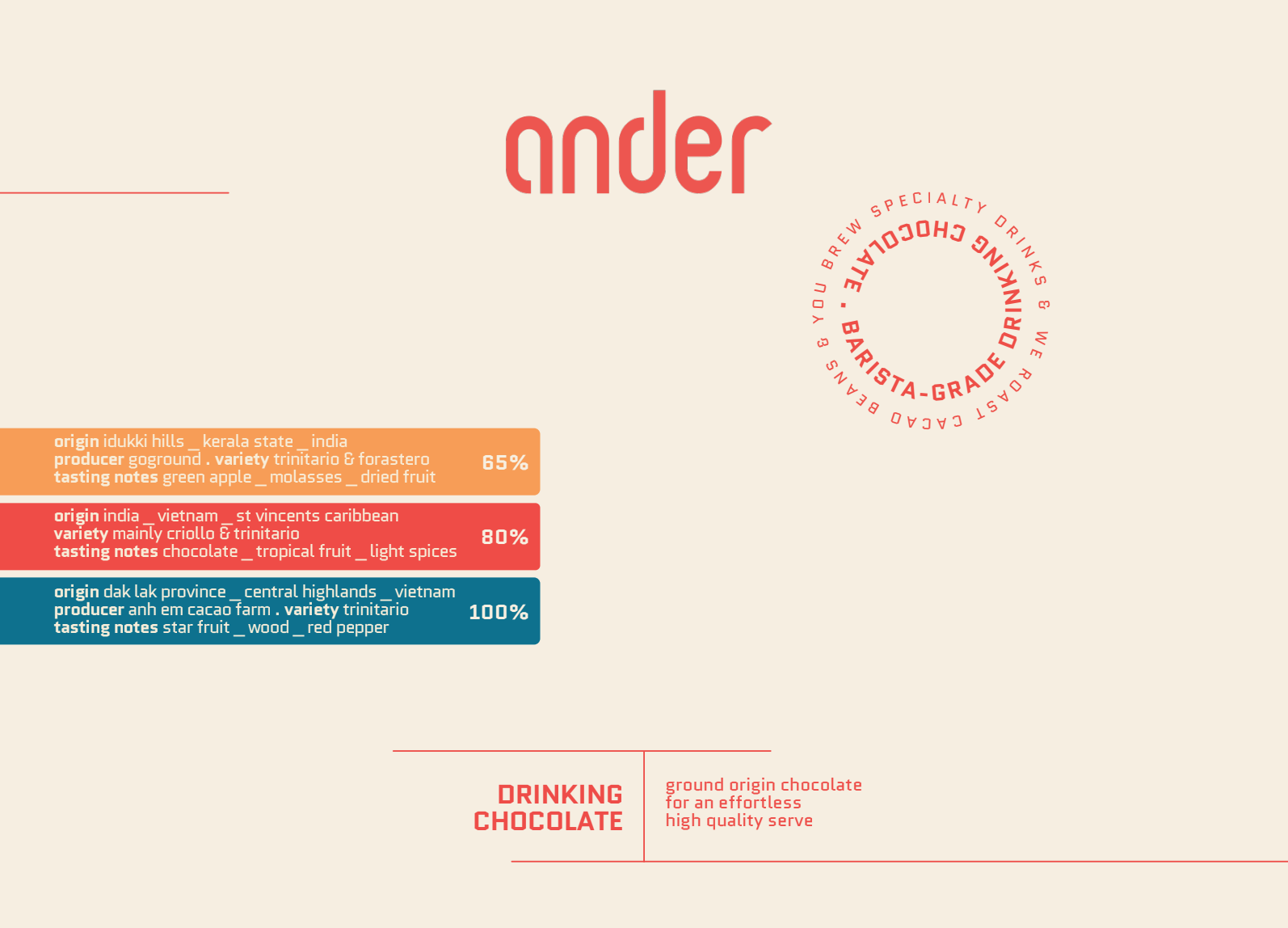“Other bean. Same Routine” — ander cacao
Mit ander cacao und unter dem Motto „Other bean. Same routine“ entwickeln die beiden Brüder Frederik und Tom Kakaogetränke auf Barista-Niveau und denken da aber weit über eine Tasse heißer Schokolade hinaus. Sie rösten und mahlen Kakaobohnen, die dann so zubereitet werden können wie Filterkaffee und eine Mokkatasse. Als jemand, die sehr koffeinempfindlich ist, und selbstverständlich ein weiches Herz für exzellente Kakaoprodukte aller Art hat, finde ich diese innovative Horizonterweiterung im Kontext von Coffeeshops, alternativen Getränken und Konsument:innenbindung sehr spannend. Welchen frischen Wind die beiden mit ander cacao umsetzen wollen, haben sie mir in ein paar Fragen konkreter dargestellt.
(Das Interview ist ausnahmsweise in Englisch, dem gemeinsamen Nenner der Belgier Frederik und Tom und mir)
What is your background?
I have a background in experience marketing, organizing business events for more than a decade. Telling a story, creating a setting, delivering on a unique ambiance and bringing original food & drinks ’to the table’ has always been a significant part of this. I always had a soft spot for craft makers, small authentic food & drink brands with a passionate story & maker behind (bread, wine, chocolate, beer, chefs, condiments etc.). I took a real interest in discovering great products with great creative packaging, or great places to enjoy coffee, food paired with a unique vibe (from architectural to cozy, scruffy, edgy etc., as long as it represented the people and vision behind it). Get to know the story behind it, meeting the people crafting it and also taking a skeptical attitude towards brands that tried to ‘mislead’ the customer with an authentic story, artisanal packaging or looking product as a marketing tool, but didn’t take a real interest in the skills, knowledge or métier behind it.
Can you tell us how the idea to brewing cacao came up?
There has always been this attraction to (specialty) coffee bar environments. It was and is my go-to-place for an
‘activity’ in the weekends or a stolen moment of time-out. I love the unique ‘local’ and ‘personal’ vibe of many of these coffee houses, the ritual of the coffee making (pour over or espresso-based with latte art), the urban escapism that is part of it. I admire the people starting such places, creating small worlds on their own, with great products, a personal identity, searching and training staff fitting their vibe. Some 7 years ago I got befriended with an amazing bean-to-bar chocolatier. I got the chance to learn about the bean-to-bar process compared to what the chocolate industry is doing, using commodity chocolate all coming from the same big industrial players. It was in the following years that I took an interest in getting to know the quality cacao beans and great similarities with specialty coffee — a surprisingly familiar affair! Comparing the coffee to the cacao belt, the impact of climate, terroir, altitude and humidity, the range of varieties, the role of the farmer and the impact of harvesting, fermentation and drying on quality and flavor potential.
Inspired by the specialty coffee roasters and baristas who revolutionized the coffee industry with their clear focus on quality, sharing the story of origin, the kind of ritual experience of slow brewing coffee, I asked myself why high-quality cacao beans couldn’t be experiences as a hot or cold beverage to really explore and discover the unique flavor differences between origins, varieties, roast profiles. Also given the fact that the concept of drinking cacao has been longer around than drinking coffee. Nowadays, we only consume cacao in the form of chocolate or drinks made out of cacao powders, consisting of mostly 50%+ white sugars and are highly processed, over-roasted cacao beans. That is not really a taste of origin experience I was thinking about. So I started thinking about cold brew cacao and filter cacao, to be able to hand brew single origins and create the purest cacao drinking experience.
How do you source your beans? What are important factors in this regard?
At the start of our journey, we have been sourcing our beans together with our befriended Torréfacteur. He has a great portfolio of quality beans and a direct relationship with a lot of the origins sourced. We used his knowledge as a bean-to-bar chocolatier to learn about roasting profiles and tweaked these to get the best possible outcome for brewing. At this stage we are looking to add some new origins to our range, working together with great coffee and cacao bean sources which clearly focus on quality and flavor as well as transparency and traceability in the supply chain (i.e. farming, post-harvesting processes, pricing, social goals, certification etc.). In the future we would love to introduce some rare, uniquely flavored cacao beans to our collection, being able to demonstrate the wide variety of aroma notes present in cacao beans ranging from fruity, spicy, herbal, nutty and so on. We are aiming to deliver drinking experiences that are as complex as tea or sake, for example, and that go beyond a simple cacao drink with a basic ‚chocolate‘ aroma profile.
(c) ander cacao. The portfolio so far includes cacao beans from India, Vietnam and St. Vincent and the Grenadines
What is your take on the specialty cacao scene - do you see chances for it in the same way as the coffee world has seen in the last decade? And where do you see your role in this?
It is clear that great efforts are being done by a lot of actors in the cacao industry to create a solid space for specialty cacao. However, it is a difficult battle. The specialty cacao scene is years, probably decades behind the specialty coffee scene. Specialty coffee roasters have been establishing themselves over the past decades and have gotten their message across in terms of quality scoring, transparency, fair prices for the farmers etc. Specialty cacao seems to remain a bit more niche, still battling against ideas of taste and price set by commodity chocolate. In both industries the term ’specialty’ is often misused, but in the coffee scene a coffee roaster is a coffee roaster, period. In the chocolate scene, a self-promoted bean-to-bar chocolatier is, sadly enough, not always a cacao bean roaster nor true bean-to-bar chocolatier. Also the specialty coffee scene has been able to create a somewhat younger, conscious community. Focusing on great hospitality, healthy food & drinks (often from local brands), often involving the creative industries, with coffee as the fundament and creating a social relevance. In my feeling the craft chocolate scene stays a bit within its traditional vibe, a bit more closed off for the consumer. Partly because they don’t have the great tool of hospitality (e.g. bars, meeting places) to interact and build wider relationships with their audience. They are missing the opportunity to create a community for the craft chocolate lovers. Compare coffee festivals to chocolate exhibitions, coffee competitions such as Aeropress to chocolate awards where chocolate is tasted and evaluated behind closed doors by connoisseurs without chocolate lovers present. This is probably because specialty cacao is in an earlier stage of development compared to the specialty coffee scene, that might be taken as a good example for future development.
There is a great opportunity for chocolatiers and cacao bean roasters to take part in the coffee community. I haven’t met a coffee roaster who hasn’t tried to have a go at roasting cacao beans or tried to brew with cacao. But still a lot of people in the coffee community are unaware of the great resemblances with cacao. A lot of the specialty coffee bars take great pride in their coffees and often also their teas, but when it comes to hot chocolate they serve a commodity product from the big players. Some coffee bars begin to understand that they’ve let their customers when it comes to hot chocolates. They should be able to have a consistent specialty offer throughout their entire menu. We believe specialty cacao beverages can support baristas to improve the industry and offer a high quality and transparent drinking experience. That is what we think of our role.
(c) ander cacao. Coffee brewing techniques are applied to cacao beans
How was the feedback from your customers so far? Do you find it difficult to motivate people to drink an alternative to coffee?
Our barista-grade drinking chocolates* are doing great. More and more coffee bars are trading their commodity solution for a high-quality hot chocolate serve, focusing on the origin and craft story behind. Feedback on our filter cacao is more nuanced. We get great feedback from North-East Europe, really pushing to get the hand brew cacao experience part of the specialty hot beverages options. Also closer to home, we have coffee bars taking a great interest in the concept of filter cacao but they are similarly hesitant when it gets down to integrating an extra hand brew beverage onto the menu. This certainly is also against the background that their customers need to be educated about the concept of what to expect when drinking cacao beans in order not to create false expectations of a chocolaty-tasting drink since this is not the case with our brews. We are constantly trying to improve our roasting profiles and grinding to achieve better hand brew experiences. And we are also looking for convenient solutions like drip bags to open the concept of experiencing filter cacao to people who haven’t got the specific brewing tools for a pour-over. Once we have this more ‘effortless’ brew in place, we want to explore its potential for chefs as a new flavor experience, a non-alcoholic origin beverage or a replacement for after-dinner coffee etc.
* what we call barista-grade:
different origins, cacao intensities and flavor experiences
ground for an incredible fast, consistent, top quality origin drinking chocolate without the need to overheat
developed with and for baristsas seeking a cleaner drink and an effortless serve
aiming to fit their speciality coffee quality and passion for origin experiences
only from light roasted beans, showcasing the tasted of origin
no powders, no additives, no messing around — with cacao beans first and always
Any plans on opening your own coffee-cacao shop?
For now, we are already juggling too many balls at one and I sincerely don’t underestimate the work and dedication needed to have your own place. All my respect goes out to the coffee-shop-owners. But we might investigate the possibilities of demo-ing on specific moments within a coffee bar setup. Of course we need to practice what we preach in terms of hospitality as a mean to create a community ;)
Can you share your brewing ritual?
A cacao mokapot in the morning (paired with some steamed milk) (instructions can be found here)
And a Hario V60 SWITCH hand brew in the afternoon, using cacao beans with the fruitiest profile with nice acidity (instructions can be found here)
What’s your favourite beverage?
Non alcoholic = a great pour over or cortado/flat white as well as a cacao mokapot
Alcoholic = orange wine! As it delivers a unique tasting experience between a natural wine and a (sour) Geuze beer. It shows how you can do original and funky things within a (once) more traditional scene.




